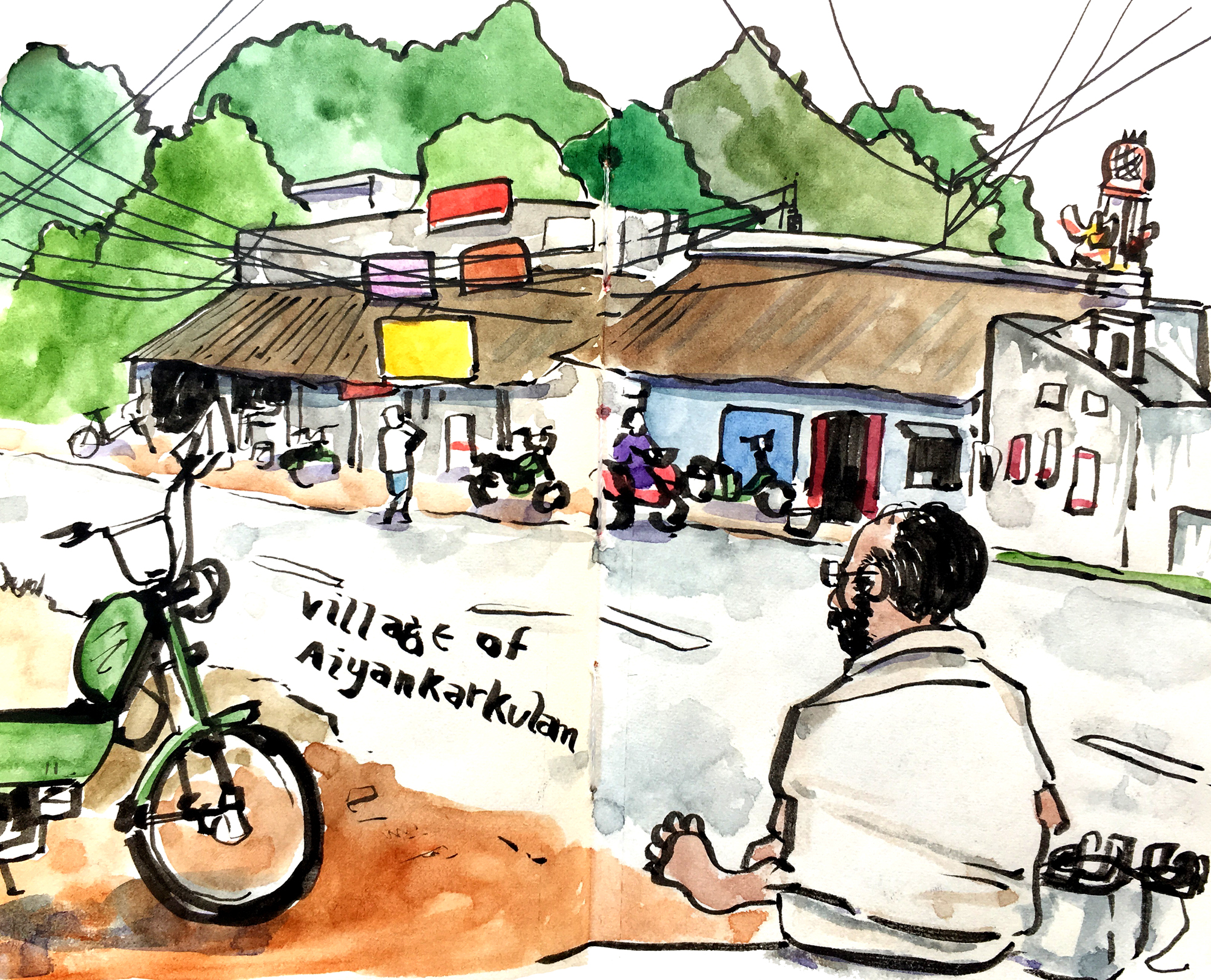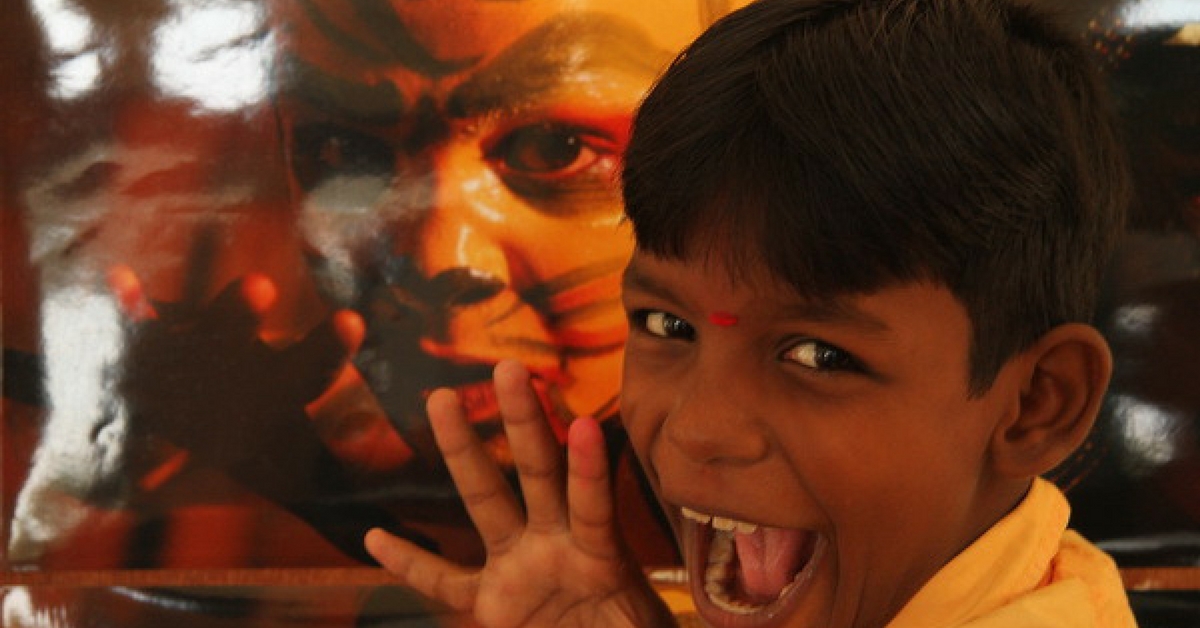Cal Brackin talks about joining a school in rural Tamil Nadu that promotes holistic youth development through traditional Kattaikkuttu theatre as part of the William J. Clinton Fellowship for Service in India.
I currently live in a rural area between three towns. In the mornings, I run to these towns to build a sense of place and to meet local community members. The nearest village of Ayyangarkulam is on a main road where traffic is constant. School and transit buses rumble through, blaring baritone horns. Ayyangarkulam is a weaver city. Off the main road are homes where open windows offer views of weavers sitting at their looms.
The village of Kolivakkam is situated off the main road, and has been described to me as a village at the end of a road. I’ve run through the town and found that the road indeed stops at a dry riverbed. Small traffic moves in and out, but not through. I’ve met several people who, over time, have become my friends. They’ve served me coffee, popped open coconuts for drinking, and lit off holiday fireworks. It is a place where I have built relationships and become fully immersed in the community of a rural village.
Kattaikkuttu Sangam uses professional theatre training alongside academics to develop children in holistic ways.

This is where I begin learning how to support the Kattaikkuttu Sangam organization. It is a social mission-driven, grassroots performing arts organization that uses the integration of academic education and performing arts training to promote, contemporize, and make sustainable the unique theatre form of Northern Tamil Nadu, Kattaikkuttu. It’s a place where holistic development of children is valued and practiced through academic education, supportive social bonds, and professional theatre arts training.
The organization’s philosophy is inspired by its founder P. Rajagopal. When P. Rajagopal was a child, he was taken out of academics to perform Kattaikkuttu. He traveled and performed with his family in all-night Kuttu theatre. Eventually, he became an outstanding performer well-known throughout the region.
His theatre practice took him abroad to Europe, where he performed, before returning to India to embark on a larger dream.
While he enjoyed being a Kattaikkuttu performer, he was saddened that young children had to quit schooling in order to perform. He dreamt of creating a school where students could pursue academic education while learning the art of Kattaikkuttu. In 1987, he met researcher Dr. Hanne de Bruin, with whom he shared his vision of building a school. As their relationship blossomed, so did their plans for creating a school. They first started a school out of their home, and in 2004 began building the current school.
On seven acres of land, children receive daily instruction on skills that they build toward mastery, which they use to create group performances that are bigger than what they individually can do. The qualities of kindness, loving, and supporting others are outcomes of a holistic educational environment. Learning their crafts builds confidence in their abilities. The community aspect of theatre builds their sense of belonging.
The gritty competition common in western schools is not prevalent, but instead one finds teamwork and a sense of helping others.
What is my role here? As a Fellow, I mainly work alongside the junior staff, update the curriculum with English teachers from the U.K., and execute grant and NGO activities. I’ve learned that whatever being involved in development is, it requires abilities to work across professions. It means learning about the skills of others and trying to use their talents to accomplish things bigger than themselves.
The ambitious goals of the school require a high level of multi-tasking by everyone and working beyond one’s duties. At the end of each day, there is always more to be done. But I try to remind myself that it should not come at the cost of what matters most—being engaged in the lives of every child and staff member here.
Find out more about the Kattaikkuttu Sangam and how you can help here.
Featured Image Source: Kattaikkuttu Sangam
Like this story? Or have something to share? Write to us: contact@thebetterindia.com, or connect with us on Facebook and Twitter.
NEW: Click here to get positive news on WhatsApp!
If you found our stories insightful, informative, or even just enjoyable, we invite you to consider making a voluntary payment to support the work we do at The Better India. Your contribution helps us continue producing quality content that educates, inspires, and drives positive change.
Choose one of the payment options below for your contribution-
By paying for the stories you value, you directly contribute to sustaining our efforts focused on making a difference in the world. Together, let's ensure that impactful stories continue to be told and shared, enriching lives and communities alike.
Thank you for your support. Here are some frequently asked questions you might find helpful to know why you are contributing?

